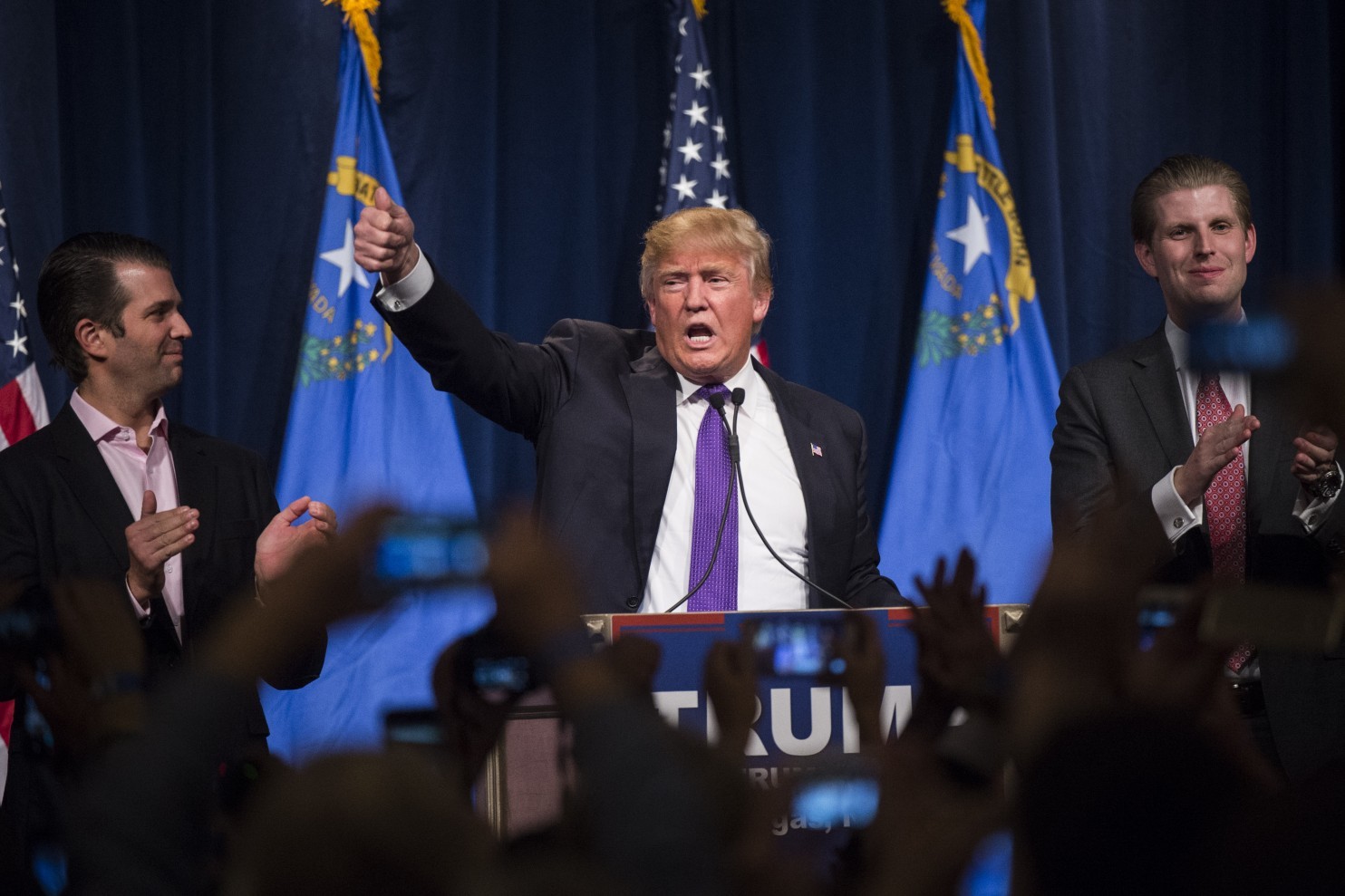
We are a very wealthy society, and we shouldn’t forget it. Donald Trump — along with many other people — apparently has. Visiting recently with The Post’s editorial board, here’s how Trump explained his suggestion that the United States limit its overseas military commitments, including support for NATO, founded in 1949:
“I think that we are not in the position that we used to be. I think we were a very powerful, very wealthy country. And we’re a poor country now. [Italics supplied.] . . . We’re spending . . . to protect other countries. We’re not spending it on ourselves.” Many Americans would surely agree, but this version of reality is wildly at odds with the facts.
The most glaring mistake is that, unlike after World War II, America is a “poor country now.” This is simply untrue. In 1950, the U.S. economy (gross domestic product) produced $2.2 trillion of goods and services as measured by inflation-adjusted “2009 dollars.” In 2015, U.S. GDP was $16.3 trillion, or more than seven times greater. Eliminating any boost from population growth (a doubling since 1950 to 320 million) still leaves today’s economy nearly four times larger than its 1950 counterpart.
Living standards have moved broadly higher, despite a debate over how much of added income has recently gone to the top 1 percent. Think of all the things that are commonplace now and weren’t before World War II: antibiotics, television, jet travel, central air conditioning, household appliances (washers, dryers, microwave ovens), smartphones and personal computers — to name a few.
True, there is stubborn poverty in America, but this does not deny our overall wealth. In 2014, Germany’s per capita GDP was only 84 percent of the U.S. level; that was better than Britain’s (75 percent) and Japan’s (69 percent).
The larger point is that the United States is wealthy enough to pay for essential government, including a robust presence abroad. Contrary to Trump’s view, the United States doesn’t protect other countries merely out of kindness. Since 1945, our military has shielded allies in the hope that prosperity and trade would promote democratic institutions and political stability. This worked in the Cold War. Though the strategy is now fraying, no better alternative is in sight. (It’s also true — a point made by Trump and many presidents — that our allies should beef up their militaries.)
If we’re so much richer, why do we feel poorer? Some answers are obvious. The biggest income gains occurred in the first 25 years after World War II. That’s not a benchmark that’s relevant for most Americans; only someone at least 55 remembers those years. Income gains in recent decades have been grudging or nonexistent. The Great Recession and the 2008-2009 financial panic amplified fears of insecurity and loss. The truth is that our position of exceptional dominance immediately after World War II was doomed to disappear once Europe and Japan rebuilt.
To these explanations must be added one other: dashed expectations. In the 1960s, the economy routinely grew 3 to 5 percent a year, and it was casually and carelessly assumed that this would continue indefinitely. If so, “real” wages and salaries — adjusted for inflation — would rise automatically, because labor demand and productivity would both be high. Government could do more, because its activities could be financed from an ever-expanding tax base.
Consider. When NATO was founded, there was no Interstate Highway System or Social Security disability program (both enacted in 1956), no Medicare or Medicaid (1965), and no Environmental Protection Agency (1970). “Not spending it on ourselves,” complains Trump. Wrong. Government priorities have been completely reordered. In 1955, defense spending accounted for 62 percent of federal outlays, and “payments for individuals” (Social Security and the like) were 21 percent. In 2015, defense was 16 percent and payments for individuals were 72 percent.
The trouble is that the economy didn’t continue growing at 3 to 5 percent annually. It’s now growing at about 2 percent. This is a huge difference. We feel poor not because we are poor but because our stunted economic growth cannot satisfy all our demands.
All this disappoints, but it does not — again — make us poor. What should government do? We are rich enough to afford whatever level of government we deem necessary and desirable. We are not rich enough to pay for government to do things that it doesn’t do well or that don’t need doing at all. We should be debating and making these choices. Our refusal measures our political poverty.
- Publish my comments...
- 0 Comments
